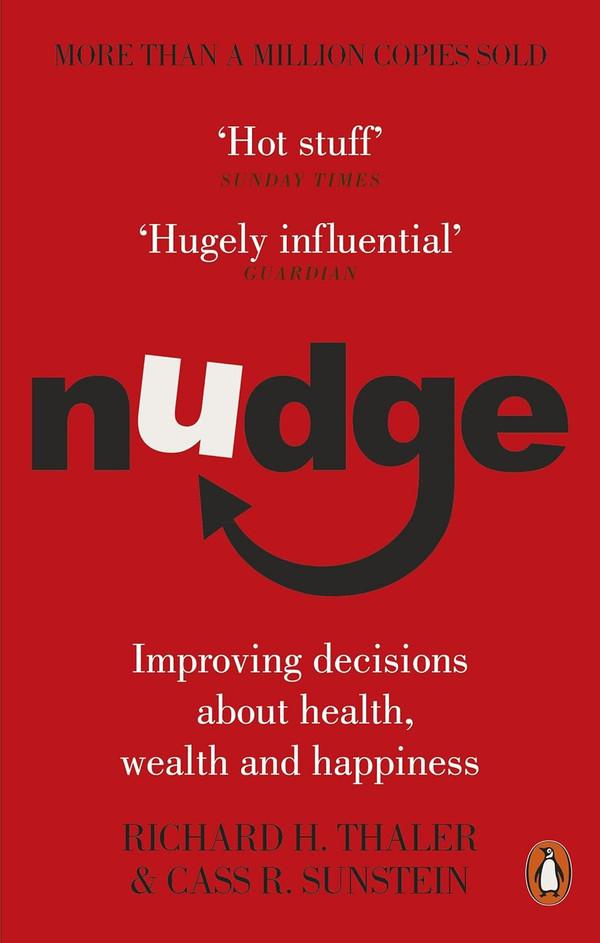Claudiu Florea's Key Ideas from Nudge
by Cass R. Sunstein, Richard H. Thaler
Ideas, facts & insights covering these topics:
12 ideas
·5.37K reads
25
Explore the World's Best Ideas
Join today and uncover 100+ curated journeys from 50+ topics. Unlock access to our mobile app with extensive features.
Power of defaults
Research shows that people are more likely to stick to the default choice. For example, in countries where the default is for people to not be organ donors only 15% of people opt in. When the default is for people to be organ donors only 10% of people opt out.
54
790 reads
Status quo bias
People have a strong tendency to maintain the current state of affairs. For example, many drivers stick with their current car insurers as they are already familiar with the service despite other providers offering better products and/or prices.
60
612 reads
Framing
The same choice framed in different ways results in different decisions. For example, “If you have the operation you have a 90% chance of surviving 5 years” results in more people opting for procedures than when the framing is, “You have a 10% chance of passing away within 5 years.”
61
546 reads
Anchoring and adjustment
When asked to make an estimate, we start with a number we know and adjust up or down from there. For example, someone from Chicago may guess the population of Milwaukee by starting with that of Chicago (~3m) and adjusting down to, say 1m. Someone from Green Bay may adjust up from their population (100k) to, say, 300k.
52
492 reads
Whatever heuristic
In low-stakes decision making, many people will choose whatever option is presented to them. For example, a TV viewer who starts the evening watching NBC is likely to stay there despite the switching cost being only one button click.
57
469 reads
Conformity
In a group context, our decisions are influenced by those that others make. For example, in a meeting if the majority of people express a certain opinion, the remaining attendees have an increased likelihood of following suit.
55
421 reads
The combination of loss aversion with mindless choosing implies that if an option is designated as the “default,” it will attract a large market share. Default options thus act as powerful nudges.”
RICHARD H. THALER
58
403 reads
Mere-measurement effect
People asked what they intend to do become more likely to act in accordance with their answers. For example, if people are asked whether they intend to eat certain foods, to diet, or to exercise, their answers to the questions will affect their behavior.
57
387 reads
Dynamic Inconsistencies
In the language of economics, the group is said to display behavior that is dynamically inconsistent. Initially people prefer A to B, but they later choose B over A. We can see dynamic inconsistency in many places. On Saturday morning people might say that they prefer exercising to watching television, but once the afternoon comes, they are on the couch at home watching the football game. How can such behavior be understood? Two factors must be introduced in order to understand the cashew phenomenon: temptation and mindlessness.
55
352 reads
Collective Conservatism
We can see here why many groups fall prey to what is known as collective conservatism: the tendency of groups to stick to established patterns even as new needs arise. Once a practice (like wearing ties) has become established, it is likely to be perpetuated, even if there is no particular basis for it.
54
330 reads
Pluraristic Ignorance
Pluralistic ignorance causes groups to publicly appear to believe something that privately each person may not actually agree with. This is primarily because few to no group members are willing to share their views, leading each person to believe that they are in the minority. Perhaps the clearest example of this cognitive bias comes from Hans Christian Andersen’s fairy tale “The Emperor’s New Clothes”.
53
282 reads
The Hot/Cold Empathy Gap
This is something the behavioural economist George Loewenstein calls the “hot- cold empathy gap”, a concept whose main insight is that even if people realize that they behave differently when aroused, they underestimate the strength of the effect. When in a cold state, we do not appreciate the extent to which our desires and our behaviour will be altered when we are “under the influence” of arousal.
56
287 reads
IDEAS CURATED BY
CURATOR'S NOTE
The book introduces “nudge theory”, a system for influencing decision making without restricting options.In order to nudge people towards making certain decisions, the authors advocate for “choice architecture”. Choice Architecture is the practice of influencing choices by organising the context in which they are made. The irony is that behavioral economics, having attacked Homo Economicus as an empirically false description of human choice, now proposes, in the name of paternalism, to enshrine the very same fellow as the image of what people should want to be. Read It with a grain of salt
“
Different Perspectives Curated by Others from Nudge
Curious about different takes? Check out our book page to explore multiple unique summaries written by Deepstash curators:
9 ideas
Yug Jain's Key Ideas from Nudge: Improving Decisions About Health, Wealth, and Happiness
Richard H. Thaler, Cass R. Sunstein
Discover Key Ideas from Books on Similar Topics
Read & Learn
20x Faster
without
deepstash
with
deepstash
with
deepstash
Personalized microlearning
—
100+ Learning Journeys
—
Access to 200,000+ ideas
—
Access to the mobile app
—
Unlimited idea saving
—
—
Unlimited history
—
—
Unlimited listening to ideas
—
—
Downloading & offline access
—
—
Supercharge your mind with one idea per day
Enter your email and spend 1 minute every day to learn something new.
I agree to receive email updates
